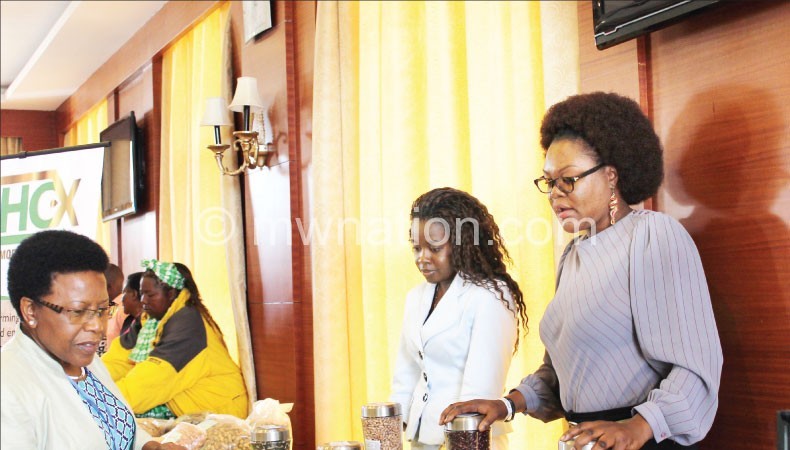Transformed into agri business by a poster

Mary Kasitomu, 38, is not an ordinary farmer. The woman, who comes from Kanyenda Village, T/A Nankumba in Mangochi, used to grow tobacco.
“I would harvest 15 bales on average in a year, but not much came out of it,” she says.
Being a widow with three children, she had opted for tobacco farming hoping to realise enough money for her family needs. But this was not the case. She says being a female tobacco farmer, it was not easy to negotiate for good prices with middlemen who usually buy and take the product to the auction floors. Thus she was making losses year in, year out.
However, light finally shone for Kasitomu.
“It was a market day at Nkope Bay Turn-Off and I saw a poster on a minibus. It was calling for expression of interest from farmers to supply legumes to Poultry Company at competitive prices. I had some soya and groundnuts that year. I saw this as an opportunity to make some money,” she says.
But on further inquiry about the poster, Kasitomu learnt that only those under the Building Critical Agri-Entrepreneur Skills in Women Project would be allowed to sell their products.
The project, funded by the Alliance for a Green Revolution in Africa (Agra) and International Fund for Agricultural Development (Ifad) aims at empowering women economically through agri-business. It is being implemented in the country and neighbouring Zambia by Women in Agri-business in Sub- Sahara Africa Alliance (Wasaa). A total of 4 310 farming families benefiting from the project, with women constituting 4 000.
In the country, the project is in its pilot phase in Lilongwe, Nkhata Bay, Machinga, Mchinji and Mangochi districts.
Although she was disappointed, Kasitomu decided to quit tobacco farming altogether and start legume seed farming.
“But I needed some guidance. I could not do it on my own, especially considering that I was quite new to legume farming. I decided to establish what Wasaa was and how it operated. In no time, there were about 40 women farmers like me and we formed a farmers’ club to enable us to access some technical support from the project,” she said.
Today, Kasitomu says the project is transforming lives. Lilly Musaya, Wasaa’s head of programmes, agrees.
“We are working to bring growth to women and youth-owned businesses to help them graduate from micro- to medium-scale or large-scale enterprises in the region,” Musaya says.
Wasaa’s mission is to serve as an institutional vehicle to spearhead economic independence and widen opportunities among women and youth in agribusiness.
To achieve this, Wasaa enhances women’s capacity to participate in business and trade through the facilitation of national and regional joint ventures, linking beneficiaries to markets.
Such interventions stand to change the face of women in agriculture, from doing almost 90 percent of the farm work only to be left out in marketing their produce.
According to Anne Mbaabu, Agra’s Market Access programme director, women are key in Africa’s agricultural growth and there is need for government to develop deliberate efforts to ensure women are linked to competitive markets.
“It’s pleasing to note that in Malawi, some of these women groups won some tenders to supply seed to the national Farm Input Subsidy Programme (Fisp). Good harvests start with good seed, and through our grants, Agra supported the release of 41 new seed varieties last year. These new varieties are better adapted to the challenges of drought, pests and diseases,” Mbaabu said.
Afriseed marketing and business development director Grace Mijiga Mhango agrees that women play a significant role in the agricultural value chain.
“Women play a major role in agriculture. They are also the custodians of the country’s nutritional security as they are the ones preparing food in the home. This is the sole reason we have been advocating gender mainstreaming in various sectors of the economy, including agri-business,” says Mhango.
With capacity building trainings in business management; leadership; good agronomic practices; post-harvest handling and the market linkages they get from Wasaa and its partners, it may be just a matter of time before women farmers like Kasitomu transform their families and communities.





